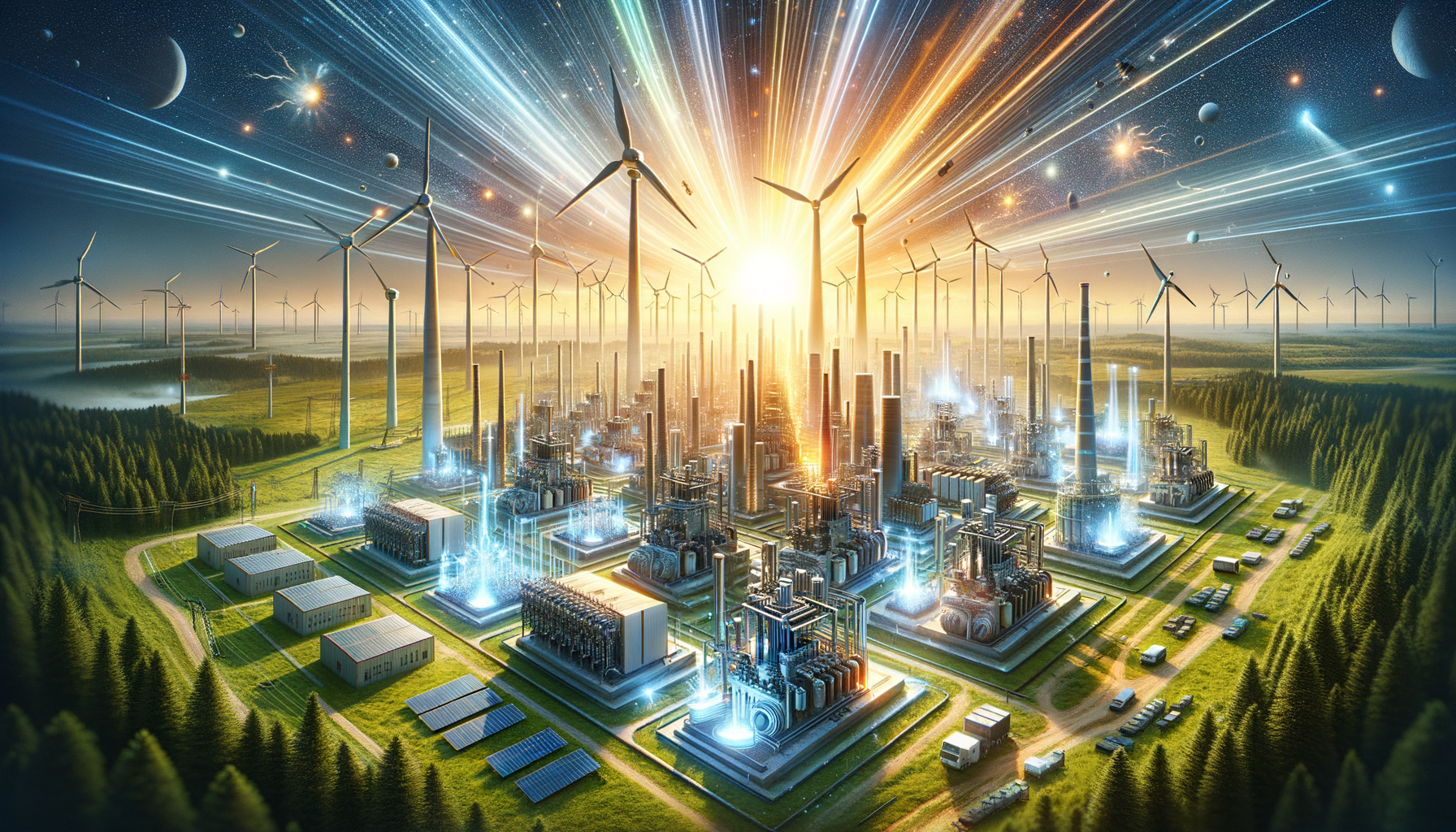
Tapping into Energy: An Insightful Look at Power Generators
Understanding the Basics: What Are Power Generators?
Power generators are devices designed to convert mechanical energy into electrical energy, providing a crucial backup power supply during outages or in locations without access to the electrical grid. They come in various types and sizes, catering to different needs from residential to industrial applications. At their core, generators operate by using an engine to drive a rotor, which in turn generates electricity through electromagnetic induction.
Generators can be categorized primarily into two types: portable and standby. Portable generators are typically used for temporary power needs and are easily transportable, making them ideal for outdoor events or construction sites. Standby generators, on the other hand, are permanently installed and automatically activate during power outages, offering seamless power continuity for homes and businesses.
Understanding the basic operation and types of generators is essential for selecting the right one for your needs. Whether it’s for emergency preparedness or powering remote locations, the right generator can make a significant difference in maintaining comfort and productivity.
The Importance of Power Generators in Modern Society
In today’s world, where electricity is the backbone of daily life, power generators play a vital role in ensuring uninterrupted access to energy. From hospitals and data centers to homes and small businesses, the need for reliable backup power cannot be overstated. Generators provide peace of mind by safeguarding against the disruptions caused by power outages, which can lead to financial losses and compromised safety.
For industries, power generators are indispensable. Manufacturing plants, for instance, rely on continuous power to maintain production lines. In healthcare, generators are critical in keeping life-saving equipment operational during emergencies. Additionally, in remote areas where grid access is limited or non-existent, generators serve as the primary power source, enabling development and improving quality of life.
As climate change leads to more frequent and severe weather events, the reliance on generators is expected to grow. They not only ensure security and stability but also support the resilience of communities by providing a reliable power source during crises.
Exploring Different Types of Power Generators
Power generators come in a variety of types, each designed to meet specific energy needs and operational conditions. The most common types include diesel, gasoline, natural gas, and solar-powered generators. Each type has its own set of advantages and limitations, making the choice dependent on factors such as cost, fuel availability, and environmental impact.
Diesel generators are known for their durability and efficiency, making them a popular choice for industrial applications. They are typically more fuel-efficient than gasoline generators, which are often used for smaller, portable applications due to their lower initial cost and ease of access to fuel.
Natural gas generators are gaining popularity due to their cleaner emissions compared to diesel and gasoline options. They are often used in residential and commercial settings where natural gas is readily available. Solar-powered generators, while still emerging, offer a renewable and environmentally friendly option, particularly useful in sunny regions or for eco-conscious users.
Understanding the specific needs and conditions of your power requirements will guide you in selecting the most suitable generator type, balancing cost, efficiency, and environmental considerations.
Key Considerations When Choosing a Power Generator
Selecting the right power generator involves evaluating several key factors to ensure it meets your specific needs. One of the primary considerations is the power output, which should be sufficient to support all essential appliances and systems during an outage. Calculating your total power requirement is crucial to avoid overloading the generator.
Another important factor is the fuel type, as it influences both operational costs and environmental impact. Diesel, gasoline, and natural gas each have their pros and cons, as previously discussed, so it’s essential to assess which aligns best with your circumstances.
Other considerations include the generator’s noise level, especially if it will be used in residential areas, and its portability or installation requirements. Maintenance and service availability are also critical, as regular upkeep is necessary to ensure the generator’s reliability and longevity.
Ultimately, choosing the right generator requires a careful balance of these factors, tailored to your specific context and needs.
The Future of Power Generators: Innovations and Trends
The future of power generators is being shaped by technological advancements and a growing emphasis on sustainability. Innovations in generator design and functionality are paving the way for more efficient, reliable, and environmentally friendly solutions. One significant trend is the integration of smart technology, allowing users to monitor and control their generators remotely, optimizing performance and fuel consumption.
Hybrid systems, combining traditional fuel sources with renewable energy, are also emerging as a promising development. These systems offer the flexibility of conventional generators while reducing emissions and operational costs by incorporating solar or wind energy.
As the world moves towards a more sustainable future, the demand for eco-friendly generators is expected to rise. Manufacturers are investing in research and development to create generators that meet stringent environmental standards without compromising on performance.
These innovations not only promise to enhance the reliability and efficiency of power generators but also align with global efforts to reduce carbon footprints and combat climate change.

